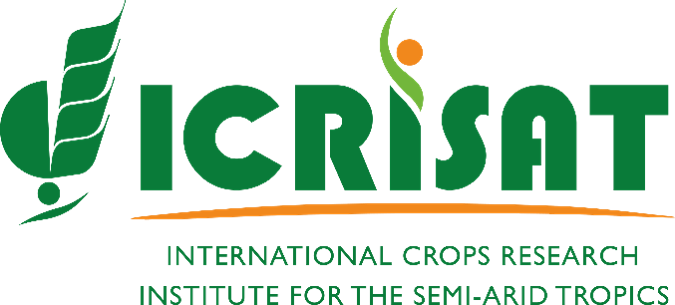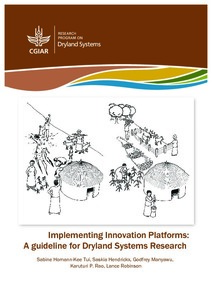Location
The International Crops Research Institute for the Semi-Arid Tropics (ICRISAT) is an international non-profit organization that undertakes scientific research for development.
Our approach is through partnerships and with an Inclusive Market Oriented Development.
Partnerships are critical as ICRISAT takes a catalyst role to help rural communities develop their own solutions and engage
the actors needed to bring the vision to reality.
Inclusive means we are inclusive of the farmers in developing solutions and inclusive of the all people especially women and youth.
Market Oriented Development means we focus our research and development efforts on making farming profitable,
helping move farmers from subsistence to commercial operators.
Members:
Resources
Displaying 46 - 50 of 75Managing Rainwater and Small Reservoirs in Sub-Saharan Africa
Implementing innovation platforms: A guideline for Dryland Systems research
Characterization of Historical Seasonal and Annual Rainfall and Temperature Trends in Selected Climatological Homogenous Rainfall Zones of Uganda
There is general lack of scientific consensus on the trend and distribution of annual and
seasonal rainfall and temperature in Uganda. This study used both observational and AgMerra
rainfall and temperature data for the period 1980-2010 to characterize the trend and variability in
seasonal and annual rainfall, maximum and minimum temperatures across 12 different rainfall
homogenous zones (K, H, ME, L, J, F, MW, D, E, A1, A2, and I) of Uganda. Trends analysis was
done using regression method, while coefficient of variation and ANOVA techniques were used
Annual water, sediment, nutrient and organic carbon fluxes in river basins: a global meta-analysis as a function of scale
Process controls on water, sediment, nutrient, and organic carbon exports from the landscape through runoff are not fully understood. This paper provides analyses from 446 sites worldwide to evaluate the impact of environmental factors (MAP and MAT: mean annual precipitation and temperature; CLAY and BD: soil clay content and bulk density; S: slope gradient; LU: land use) on annual exports (RC: runoff coefficients; SL: sediment loads; TOCL: organic carbon losses; TNL: nitrogen losses; TPL: phosphorus losses) from different spatial scales.
Participatory analysis of vulnerability to drought in three agro-pastoral communities in the West African Sahel
Drought is one of the major climatic hazards impacting on the various sectors including crop and livestock in the West African Sahel. Pastoral and agro-pastoral communities in the region are regularly affected by drought, with vulnerability differing with gender, age, wealth status (access to cropland and livestock endowment), geographic location, social networks, and previous exposure to drought. Effective interventions require regular monitoring of vulnerability to drought, for which various quantitative and qualitative approaches exist.




